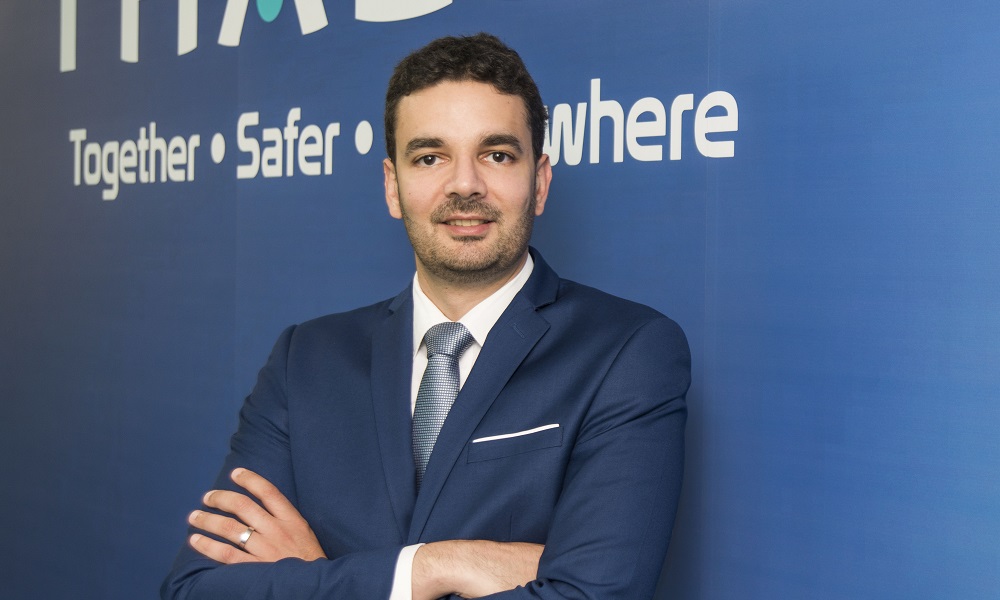Artificial Intelligence is the defining technological revolution of our century, impacting all sectors, all fields, all of humanity and modern society. The pace of development has been so rapid that the very conception of AI is constantly evolving and being challenged.
AI can already provide real-time measurement of stress and fatigue, and behavioural biometrics – the way you walk, talk or even type on your phone – are increasingly being used by financial institutions to detect and prevent fraud. As the world around us becomes increasingly connected, I think the boundaries of the possible are being constantly pushed back.
For example, research from Gartner predicts that 10% of personal devices will have emotion AI capabilities, such as wearables that are able to monitor a person’s mental health by just 2022.
The biggest hurdle behavioural and emotion AI must overcome before it becomes mainstream is that people are uncomfortable with it. AI is often popularised in fiction as an existential threat – the notion of machines rising against humans – leading us to mistrust it.
So, it is essential that developers work to ensure systems are transparent, understandable and ethical, where users can see the data used to arrive at a conclusion, can explain and justify the results and ensure that it follows objective standards protocols, laws, and human rights. We call this TrUE AI (Transparent, Understandable and Ethical).
Artificial Intelligence, coupled with the powerful processing and huge data stores that we now have, is excellent at recognising patterns and extracting information that would otherwise be hidden form human eyes. The challenge is to think widely enough to exploit the technology where it can make the greatest positive changes.
For example, imagine using your face as you fast-pass instead of buying a metro or tram ticket, or never having to worry about forgetting your boarding pass or passport. Facial recognition programs, powered by AI, will eliminate all issues related to physical fare media, such as loss and theft.
AI could also improve the environmental performance of the transport sector by optimizing movements to improve energy consumption during operation. For example, all of Dubai’s metro system is completely automated and driverless. Technology like this was unthinkable just a couple of decades ago, and artificial intelligence has quietly evolved from being aspirational to commonplace to being truly indispensable.
The digital transformation occurring in all parts of our lives has also brought many benefits to the office environment that we now couldn’t imagine living without. Digital office assistants can, for example, tell you which meeting rooms are free, control conference room equipment settings and order supplies based on the frequency of your order history. Smart buildings and smart desks can not only help create efficiencies in the workforce, but they can also cut down environmental and monetary costs for businesses.
While a 3D holographic meeting might be a little while down the line, the opportunities of the application of AI in both our personal and professional lives are endless. People have not only been open and accepting of the changes, they have been engaging in the technologies, making them Smarter and even more useful.
The use of AI has accelerated significantly recently, not just across the UAE but globally, in a bid to slow down the spread of COVID-19. For example, some countries are rolling out chatbots that help screen potential cases and surface treatments by centralising research data.
Indeed, the use of data and AI can potentially transform the Arab world’s urban hubs into digitally enabled smart cities. The same drivers that have moved companies toward digitalisation – connectivity, machine learning, cloud, secure identity and so on – will move cities toward it too.
For example, Zayed Smart City Project, launched in 2018 as part of the UAE AI Strategy 2031 aims to harness emerging technologies such as Artificial Intelligence to add intelligence to urban infrastructure and municipal service, and better the lives of UAE citizens.
We are all relying on artificial intelligence to improve decision-making, save lives and make the world a safer, cleaner and friendlier for us all. Having said that, the current state of AI leaves room for a number of problems to be solved in order to continue its effective use. One of these is an extreme shortage of cybersecurity professionals.
In an effort to make up for lack of personnel, many companies are turning to Artificial Intelligence as a sort of multi-functional pocket-knife to better defend their networks. This coupled with companies setting AI thresholds too high or too low can impact the effectiveness of AI. False positives and negatives can waste the better part of a security analyst’s day. In 2020, having an Artificial Intelligence program smart enough to recognize what is a real threat and what is just background noise, will be the real test.
The biggest benefit of AI is that computers never get bored and never get distracted. Therefore, they can process huge amounts of information extremely quickly, extracting the information that we humans need to know. However, as with any application of AI, humans must choose how much room for manoeuvre they’re prepared to give the technology. Artificial intelligence (AI), like any other technology, is neither good nor bad — it all depends how people use it. The role of AI in cybersecurity is a good example: hackers use it to do harm, cybersecurity experts use it to help thwart their attacks.
The new possibilities created by AI are defined not by software and hardware, or numbers and data. They will instead be defined by how they help people lead better, happier and safer lives.

